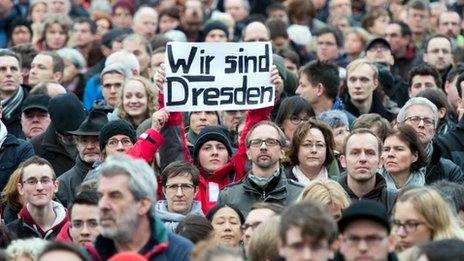Germany marks 70th anniversary of Dresden firebombing
- Published
BBC News looks back at the commemoration ceremony
Commemorations are taking place in Germany to mark the 70th anniversary of the bombing of Dresden.
An estimated 25,000 people died in the British and American attack, which created a firestorm that left 33 sq km (12 sq miles) of the city in ruins.
Speaking at the city's Church of Our Lady, German President Joachim Gauck said the attack had "burned itself into the memory" of survivors.
The city was believed by Allied forces to be a vital Nazi command centre.
It was used by German forces to defend the country against Soviet forces approaching from the east.
'Wounds'
Friday's events have included an afternoon service at the Church of Our Lady, or the Frauenkirche, which has been rebuilt since it was destroyed in the World War Two raids.
Ursula Elsner was 14 at the time of the bombing: "We clung on but one woman didn’t make it. The firestorm grabbed her."
President Gauck told the congregation that Dresden had become a symbol of the suffering of the war, and that Germany needed to learn lessons from its past.
"We know who started the murderous war... we know. And that is why we don't and we will never forget the victims of German warfare," he said.
"We don't forget when, today, we remember the German victims."
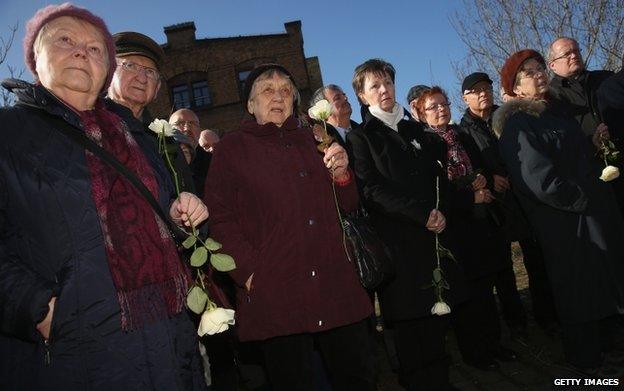
Survivors of WW2, along with Dresden Mayor Helma Orosz (fifth from right), laid white roses at a former train station where Nazis transported Jews to concentration camps
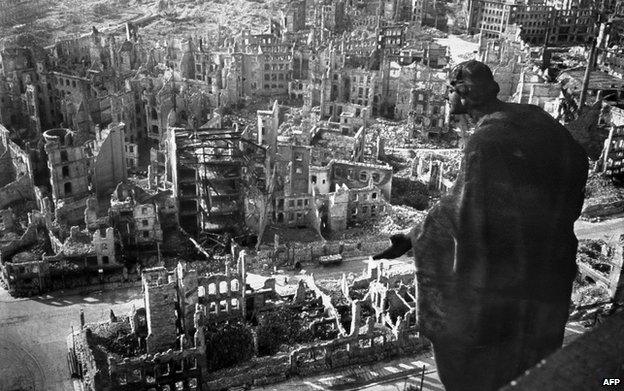
A photo taken from Dresden's town hall after the bombings shows the extent of the destruction to the city
Meanwhile the Archbishop of Canterbury Justin Welby addressed the controversy surrounding the Allied raids, which critics now believe was disproportionate.
"Whatever the arguments, events here 70 years ago left a deep wound and diminished all our humanity," he said.
"Healing such wounds requires enemies to... become friends, which starts with our memories with the hurt we have suffered and ends with a shared understanding of the hurt we have caused each other."
Attempts to exploit
Anti-fascist campaigners, joined by church dignitaries, also formed a human chain to pay homage to the victims of the massive bombing, as they have done in past years.
Thousands of people are expected to gather in the city centre on Friday evening to remember those killed.
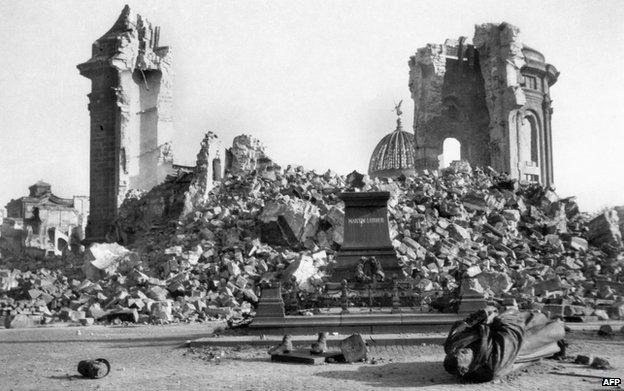
The attack left Dresden's Church of Our Lady and Martin-Luther-Memorial in ruins
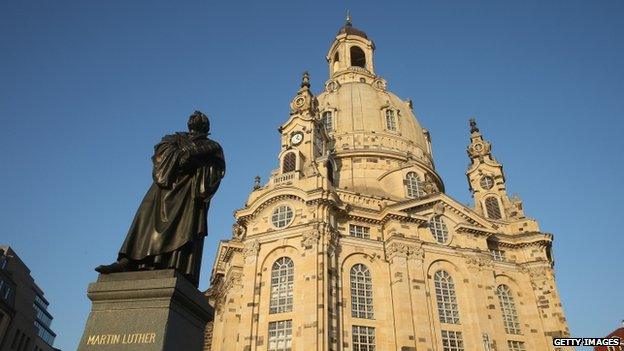
The statue of Martin Luther and the Church of Our Lady have since been rebuilt
Dresden Mayor Helma Orosz has said that the events would be an opportunity to demonstrate the city's core values of "openness to the world and tolerance".
Far-right supporters have previously sought to exploit the anniversary of the bombings, although marches have dwindled in recent years.
Dresden has become the hub of Germany's "anti-Islamisation" Pegida movement, which has brought thousands onto the streets for weekly protests since October 2014.
Powerful symbol
Starting on 13 February 1945, British and US planes unleashed a massive 37-hour bombing, sparking a huge inferno that engulfed the city's old town.

White rose

Carried as a symbol of the ability to overcome war, racism and violence
Shows opposition to attempts by the far-right to exploit the anniversary of the Dresden firebombing
Emblem of non-violent Munich resistance group in Nazi Germany
Evokes story of porcelain plate painted with white roses given by Dresden woman to survivors of German bombing of Guernica in 1937 as a request for forgiveness and symbol of joint suffering

By the time it was over, tens of thousands of Dresden's buildings had been turned to rubble, including its famous opera house and a number of museums.
The 18th Century Church of Our Lady appeared initially to have survived, but, weakened by the intense heat, it soon collapsed under its own weight.
Many other European cities suffered heavy bombing but Dresden has become a powerful symbol of war and destruction, says the BBC's Jenny Hill in the city.
The city still shows the signs of the attack, our correspondent adds.
- Published12 February 2015
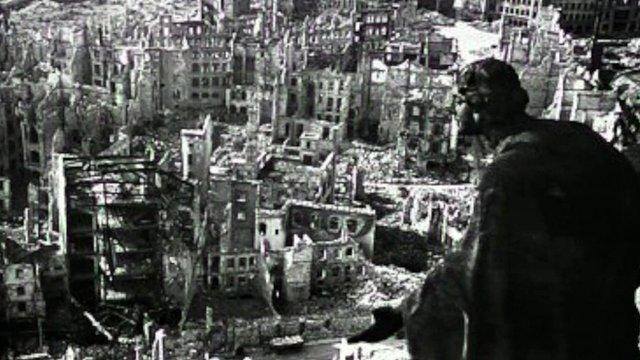
- Published13 February 2015
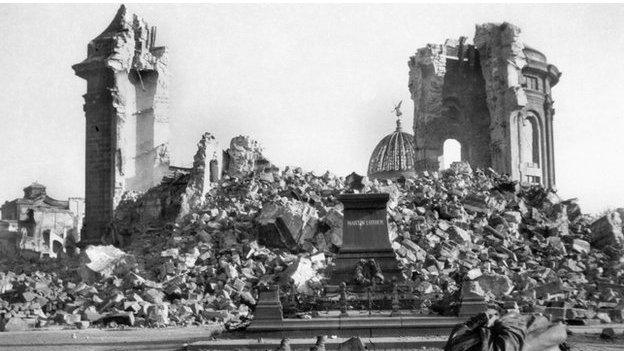
- Published10 January 2015
